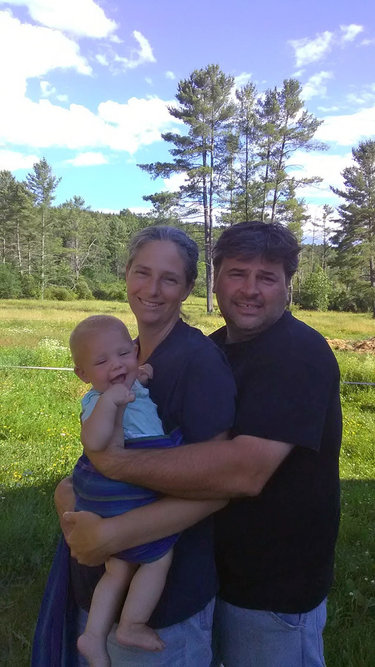Medusa General Store renewed as discussion, event space
RENSSELAERVILLE — As part of a years-long effort to revitalize community spirit and highlight the positive aspects of life in small, rural towns, April Roggio announced on Facebook that she will be reopening the Medusa General Store, though not as a place where money is exchanged for goods. Instead, Roggio hopes it will be a space where ideas are exchanged between neighbors.
“[We] are playing with some ideas of how we remake the space into something that is more accessible to the community,” Roggio wrote in the Facebook announcement. “It seems, to those of us that have been gathering to discuss possibilities, that having a physical place for community discourse is particularly important these days.”
In that spirit, Roggio invites residents to gather at the store at noon on Sundays, for coffee and discussion. Come spring, the store will host Post-Carbon Institute discussion groups; and in January, the Yacon Village Community, a homeschooling resource group from Guilderland, will hold pop-ups on Fridays.
Less solid are an Emergence Walk — which Roggio describes as “a kind of pilgrimage in place, to celebrate our region” — and the possibility of her research firm, which partners with the State University of New York College of Agriculture and Technology at Cobleskill, engaging in the “Design Global, Manufacture Local” movement, using the store as a practical space.
Though taking a new form, Roggio, who has a doctorate in Public Administration from the University at Albany, always intended the property to be a gathering space, even when it functioned as a store.
Roggio, along with her husband, Jason Caprio, purchased the property in December 2009 and opened the store on May 17, 2010. In an announcement posted on the store’s blog, Roggio wrote that, in addition to selling merchandise, the store would be “a magnet for local chatter and neighborly connection.”
“[The] store represented more than a retail facility,” Roggio told The Enterprise in an email this week. “It was a place for neighbors to converse, for friends to visit, for a community to plan for the future. That sounds a bit melodramatic, but truthfully, we locals mostly gather at the transfer station these days.”
When the Medusa General Store closed on Dec. 31, 2014, nine months after the closure of Fox Creek Market, in Berne, Roggio had to fight back against popular belief that rural businesses are doomed.
“Our store supported a family of 5,” Roggio wrote in a blog post addressing misconceptions about the store’s closing, “and then 7 and 8, for years. It covered many mortgages and debt. Can someone else do it? Yup. You won’t make a ton of money — who, these days, is? — but it will be satisfying and successful.”
Roggio wrote that closing the store was a matter of family and time, with the duties of operating a business — like working 12-hour days, seven days a week — encroaching on both.
Still, the commercial element couldn’t be ignored.
“Yes, I asked people, often and sometimes loudly, to spend their dollars locally,” Roggio told The Enterprise. “And they tried. But we are embedded in a culture that makes it incredibly difficult for us to choose something other than what is in our economic best interest.
“We might ache for a landscape strewn with small dairy farms, but we value a gallon of cheap milk,” she continued. “We might love having general stores thrive in all of our hamlets, but it is cheaper to grocery shop at Walmart.”
So, instead of trying to provide an answer to the problem of balancing the tranquilities of rural life with the conveniences that come with suburban sprawl, Roggio is contenting herself to ask the questions.
“Can this be a place for people again,” Roggio asked rhetorically. “Does it need to turn a profit to make lives better? Can we participate in a different kind of economy, one that supports and lifts up rural communities instead of extracting from them? I have no idea. So to a great degree, we are just asking questions and making a space for smarter people than me to answer them.”



